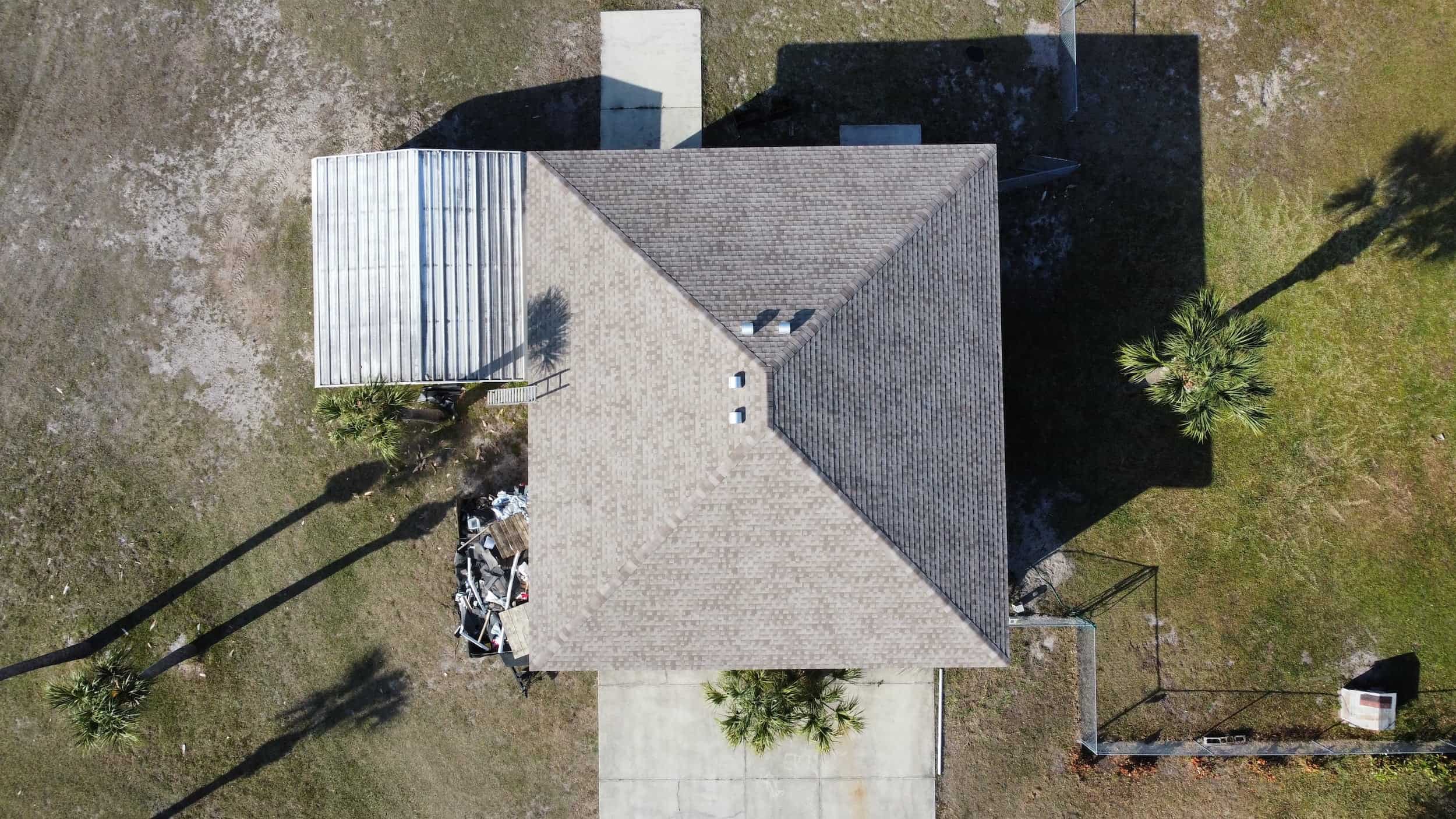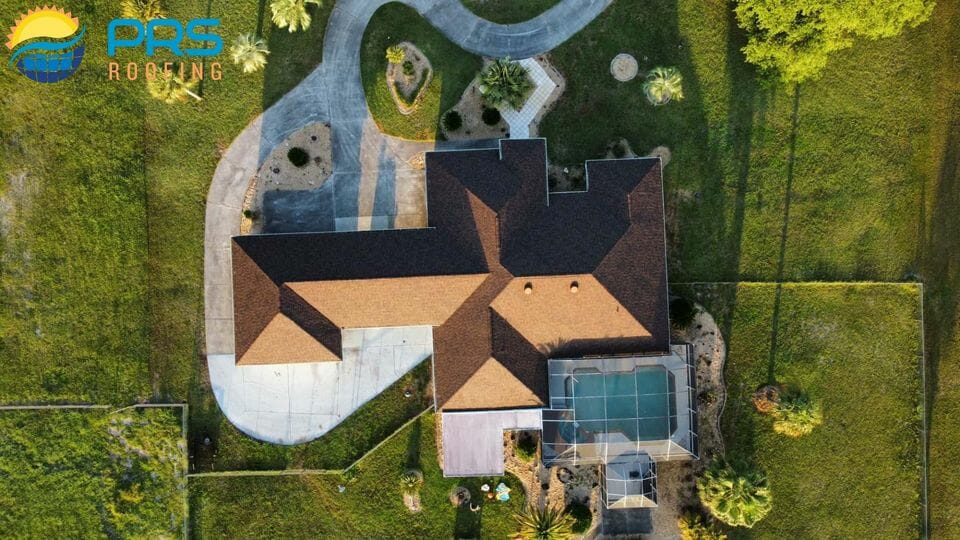Embarking on a home renovation is exciting, yet it involves more than choosing colors and materials. Preparing for contractor visits is crucial. It’s not just about hospitality, like offering coffee; it’s about laying the groundwork. Ensure you’re hiring a licensed, insured professional who can realize your vision. Prepare for a positive working relationship and make your space safe and accessible for the work area. This guide will cover how to prepare effectively for the contractor’s visit, from verifying their qualifications to setting up your home, all to ensure a successful renovation project.
Key Takeaways
- Preparation for a contractor’s visit is crucial to the success of a home renovation project.
- Ensure the contractor is appropriately licensed and insured.
- Obtain written agreements about the scope of work and payment details.
- Preparing your home for the visit means ensuring safety and easy access to the work area.
- Research the contractor’s past work before the visit to ensure quality workmanship.
- A successful first meeting sets a positive tone for the entire project.
- Maintain open and effective communication throughout the project duration.
Understanding the Importance of a Successful First Meeting
The importance of the initial meeting with a contractor cannot be overemphasized. As homeowners, it’s our chance to set the right tone for the project and evaluate if the contractor is the right fit for us. So, how do we make the most out of this crucial first meeting? Here are some essential tips for a successful contractor visit.
Evaluating the Contractor’s Qualifications and Experience
The first meeting offers a perfect opportunity to assess a contractor’s qualifications and experience. Check their professional reputation and validate if they have been in the business for a minimum of five years. Experience is a vital factor; an experienced contractor can handle unforeseen challenges that may emerge in the course of the project.
| Qualifications | Methods of Evaluation |
|---|---|
| Professional Reputation | Check online reviews, ask for previous clients’ references |
| Years in Business | Verify their experience through professional licenses |
Setting Clear Expectations for the Project
Clear communication is key to a successful contractor visit and can save a lot of headaches down the line. It’s important to define the scope of the project, discuss the budget, and agree on timelines. Always ensure that every element of your vision is articulated to the contractor and documented in writing. This can serve as a reference point and reduce the likelihood of conflicts arising during the project.
- Scope of Work: What exactly do you want the contractor to do?
- Budget: How much do you plan to spend on this project?
- Timelines: When do you want the project to start, and by when should it be completed?
The Significance of First Impressions in Contractor-Client Relationships
The initial meeting is more than just business. It’s also about building a connection. Establishing rapport and positive communication lines with your selected contractor is crucial for the project’s boost. It’s essential to assess if the contractor understands your vision for the project and can meet your standards for workmanship and customer service. Following these steps in preparing for a contractor visit can help ensure that you are off to a great start with your home renovation project.
Selecting the Right Contractor for Your Project Needs
When getting ready for a contractor visit, no factor is more critical than ensuring you choose the ideal person for the job. It’s not just about hiring a contractor; it’s about hiring the right contractor who can navigate your project’s unique needs successfully.
One of the things to consider before a contractor visit is their specialization. A quick glimpse into their past projects can tell you if they are comfortable tackling jobs similar to what you have. For instance, you don’t want to hire someone specialized in bathroom remodeling for a kitchen renovation project, or vice versa. This research can save you time, money, and considerable stress down the road. Enquire about a contractor’s expertise beforehand and ensure it aligns with your project needs. Local contractors have various advantages that can simplify your renovation journey. Let’s break down the benefits of hiring locally:
- Should any issues arise, they can be tackled promptly due to the contractor’s proximity.
- These contractors are likely to have in-depth knowledge of the local building codes, a crucial factor during implementation and inspection.
- Hiring locally injects money back into your community, aiding with its economic growth.
Moreover, a physical address speaks volumes about a contractor’s reliability and trustworthiness. After all, a brick-and-mortar office or store invests a semblance of permanence to their business, lending them credibility. So, during your preparations for their visit, consider verifying their physical address. Lastly, always be suspicious of contractors who solicit door-to-door or are hesitant about leaving a contract for review. Such behavior may be an indicator of potential fraud.
Key Documents to Have on Hand
Proper preparation before the contractor’s visit is the key to ensuring a smooth project execution. One critical step in your contractor visit checklist should be to put together all the necessary documents. These papers are your road map and proof of agreement, making them indispensable in outlining the path your project is to take.
The following contractor visit checklist outlines the essential documents to prepare before a contractor’s visit:
- A detailed description of the work: This document should capture all the work you want accomplished, contributing to a more accurate projection of the project’s scope and price.
- The Contract: A good contract should enumerate the work to be done, clearly state your agreed payment, and specify both the start and expected completion dates.
- Payment Schedules: Keep a document for tracking all payments made and those yet to be settled. It promotes transparency and averts financial disputes.
- A list of all Signatures on the agreement: Anyone who has a pivotal role in the work should sign the agreement. It ensures all key parties are aware of their roles and responsibilities in the project.
To ensure a successful project, document and mutually agree on all changes, including upgrades and additions, before implementation. This structured method avoids misunderstandings common with verbal agreements. Additionally, confirm that the contractor has obtained all required building permits, either through a document or an electronic receipt, prior to their visit. Adhering to this checklist promotes a smoother renovation process, increasing the chances of achieving your desired results. It’s a crucial step in maintaining clarity of roles and responsibilities throughout the project.
Preparing for Contractor Visit
The first step towards a successful renovation project is preparation. Knowing how to get your home ready for a contractor visit is vital to the smooth execution of the project. From securing valuables to ensuring the safety of household members, there are several key aspects to consider when prepping for a contractor visit. The following steps will guide you through this process.

Securing Valuables and Sensitive Areas
Before any work commences, it’s important to take necessary precautions to protect your valuables and ensure privacy. This includes both tangible belongings and sensitive areas throughout your home. Securing valuables does not only mean expensive items—it can also mean objects with sentimental value. Store away personal belongings in a safe place to prevent any accidental damage or loss during the construction process.
Clearing the Work Area to Facilitate Access
Another crucial aspect of getting your home ready is preparing the work area. A clutter-free space allows the contractor to move around freely, reducing the risk of accidents and facilitating an efficient workflow. Clear the work area of unnecessary furniture and items that might pose an obstacle. This also includes moving personal items that could be affected by dust or construction debris. A clean, clear worksite can help the project proceed smoothly and efficiently.
Addressing Pets and Household Safety
Animal and household safety is of utmost importance during renovation projects. If you have pets, make arrangements to keep them away from the work area to ensure their safety. This may involve keeping them in a separate room, boarding them outside your home, or using baby gates to prevent access to the construction site. Likewise, ensure that safety measures are in place for all household members during the visit. This includes everyone having the necessary protective gear.
Making Informed Decisions About Project Costs and Timelines
Effective management of budgets and schedules is key to a successful renovation project. Start by preparing for contractor visits, obtaining and closely examining detailed bids from several contractors. Question any unusually high or low costs to ensure efficient use of resources. When planning the project timeline, avoid rushing; a thoughtful approach prevents future issues. For payments, resist paying in full upfront. Adopt a milestone-based payment schedule to align payments with progress and meticulously document all transactions for future reference. This careful scrutiny ensures a well-managed renovation.
Here’s a simple table to guide your contractor’s cost and timeline decisions:
| Decision | Why It’s Important | How To Do It |
|---|---|---|
| Requesting detailed bids | It ensures the transparent breakdown of costs, allowing easier comparison between contractor estimates. | Ask multiple contractors to provide comprehensive bids. |
| Observing estimate anomalies | It prevents being overcharged or underserved. Unusually high or low charges might indicate less-than-ideal business practices. | Interrogate any costs that seem disproportionately high or low. |
| No rush in contract signing | Delays prevent rushed decisions that could lead to unfavorable contract terms. | Be deliberate in going through contract terms. |
| Adhering to a standard payment schedule | Provides leverage on the contractor and prevents loss of money if the project stalls or the contractor vanishes. | Prefer staged payments tied to project milestones. |
| Retaining payment documentation | Ensures you have proof of payments made in case of any disputes. | Maintain a habit of always asking for and storing receipts. |
As you continue on the journey of your home improvement project, consider these tips to guide you in making informed decisions about project costs and timelines. Your careful planning will ensure that you are well-prepared for the contractor’s visit.
Creating a Realistic Project Checklist
One of the best contractor visit preparation tips we have for you is to create a comprehensive project checklist. A robust checklist goes beyond a simple list of tasks. Instead, it encompasses every aspect of your project – timelines, deliverables, expectations, and more. Why is this necessary? A checklist not only helps us stay organized but also makes sure that nothing falls through the cracks, ensuring a successful renovation project.
Establishing a Communication Plan Between You and the Contractor
One critical item to include in your checklist is a well-defined communication plan. After all, clear and regular communication is key to any successful project. Ensure the contractor knows how and when you prefer to be contacted, whether it’s via email, phone calls, or in-person meetings. Stress the importance of regular updates on the project’s progress and immediate notification of any significant issues or changes.
Developing a Mutual Understanding of Project Scope and Deliverables
Another important point in your checklist should be a mutual understanding of your project’s scope and deliverables. This includes the range of work to be done, key milestones, projected end results, and measures of success. Identifying these factors upfront avoids misunderstanding and reduces the chances of unplanned changes, delays, or additional costs down the line. This leads to a smoother contractor-client relationship, a successful project, and overall satisfaction with the renovation. Now you’ve got some key steps to take in creating a contractor visit checklist. Implement these you’re one step closer to a successful, well-execManaged renovation project!
Benefits of Effective Communication With Your Contractor
Navigating through a contractor visit can be challenging. However, with clear communication, the process becomes greatly simplified. Good lines of communication enable smoother project flow, fostering better relationships with your contractor. Mastering this aspect comes with numerous benefits, from adaptability to unprecedented changes to maintaining transparency through well-preserved documentation. Here are some essential tips for a contractor visit.
How to Address Changes and Adjustments to the Plan
Projects can take numerous turns, and sometimes, deviations from the initial plans are inevitable. Therefore, the ability to address changes and adjustments to the plan is essential. Be proactive in communicating with your contractor about possible changes, estimate potential obstacles, and plan preemptively to minimize disruptions. This promotes adaptability, ensuring your project effectively maneuvers any unforeseen events.
Maintaining a Documentation Trail from Start to Finish
Documentation serves as a pillar of transparency and accountability during your home renovation project. Keeping a detailed documentation trail, inclusive of change orders and permits, aids in track management and serves as proof of all agreements. Both you and the contractor should have copies of the same documents, ensuring everyone is on the same page.
A well-maintained documentation trail is essential to retain a detailed account of all project activities – a core tenet to simplify your contractor visit.
| Key document | Function |
|---|---|
| Contract | Outlines the project scope, cost, and timeline. |
| Change orders | Detail any agreed-upon changes to the initial work plan. |
| Permits | Verify the legality of the construction work. |
| Payment receipts | Provide a record of financial transactions and balances. |
The key to getting your home ready for a contractor visit effectively lies in open communication lines, adaptability to project changes, and diligent documentation. Balancing these aspects ensures a stress-free renovation process with desirable results.
Navigating the Legal Aspects of Contracting Work
When you’re preparing for a contractor visit, understanding and navigating through the legal aspects is of paramount importance. This includes being aware of your rights and the contractor’s obligations, as well as having a well-prepared contract and verifying the contractor’s insurance.
Understanding Your Rights and the Contractor’s Obligations
A critical aspect of what to do before a contractor visit involves getting familiar with your rights as well as the contractor’s obligations. As a consumer, you have a federal “cooling-off” period, which provides you the right to cancel a contract within three business days from when it was signed, especially if the agreement was brokered at your home. Conversely, the contractor is responsible for not only delivering the agreed work to the stipulated quality but also maintaining a safe environment while working in your home.
The Importance of Contracts and Insurance Verification
Part of getting ready for the visit involves drafting a well-detailed contract encompassing each aspect of the project. A comprehensive agreement should outline all things from the scope of work, materials, costs, and payment schedules to the estimated completion timeline. Provisions for guarantee/warranty of the completed work should also be included. Additionally, it’s imperative to verify all necessary insurance and bonding from the contractor before work commences. Coverages should include workers’ compensation, general liability, and property damage.
| Legal Aspect | Importance |
|---|---|
| Consumer Rights | Protects you by allowing cancellation of the contract within a “cooling off” period |
| Contractor’s Obligations | The contractor must provide a safe work environment and comprehensive work. |
| Well-detailed Contract | Ensures agreed-upon work parameters, costs, and timelines are in writing and legally binding. |
| Insurance and Bonding | Protects you and your property in case of incidents during the contractor’s operations. |
Managing Payment Schedules and Financing
When preparing for a contractor visit, financial readiness plays as important a role as any other preparation. Proper management of payment schedules and financing options ensures a smooth renovation journey devoid of unnecessary hitches. Prior to committing to a contract, it is crucial to be clear about payment expectations and agreements. Let’s guide you through some significant steps to prepare for a contractor visit.
- Full payment upfront is a red flag: It’s a well-known fact in the industry that contractors should never ask for full payment upfront. A typical down payment should be around 10% of the total project cost.
- Adhere to payment schedules: Always adhere strictly to the terms of the contract, especially financial agreements. Delayed payments can lead to halts in project execution, and no one wants a prolonged renovation project.
- Financing options: For larger projects, ensure you have a robust financial plan in place. Sometimes this might require pre-approval of financing options in case of budgetary constraints.
- Stay organized: It can’t be stressed enough how important organization is, not just for your home pre-renovation but for all the paperwork and receipts as well.
It’s not just about having sufficient funds for your renovation project but also managing them efficiently throughout the engagement. Your investment in the project is not just financial but also emotional. By following these steps, you’ll be well on your way to not only a successful contractor visit but also a home transformation journey that you’ll be proud of.
Conclusion
Preparing for a contractor visit involves several key steps. First, selecting the right professional is crucial, which means vetting their qualifications, experience, and understanding of our specific project. Our role is also important in supporting the contractor’s work, from securing our home to establishing clear communication and realistic timelines. Financial management is essential, including handling payments securely, being clear about our budget, and having a detailed contract. Although these tasks may seem overwhelming, they are vital for the success of the project. Thorough preparation and effective communication are the cornerstones of a smooth, well-executed renovation, ensuring our house feels more like home.
FAQ
What are some tips for preparing for a contractor’s first visit?
When preparing for a contractor visit, gather all necessary documents, including detailed project descriptions and contracts. Clear the work area and secure any valuables or sensitive areas in your home. Have a clear idea of your project expectations in terms of scope, budget, and timelines and be ready to communicate these effectively to the contractor.
Why is the first meeting with the contractor crucial?
The initial contractor meeting is a moment to evaluate the contractor’s qualifications, set clear expectations, and form a positive contractor-client relationship. You can gauge if the contractor understands your vision and meets your standards in workmanship and customer service.
How can I ensure I’m selecting the right contractor?
Start by doing thorough research on potential contractors. Consider their specialization and make sure they have a physical address. Local contractors are ideal as they will be easier to contact if issues arise and are likely familiar with local building codes.
What documents should I prepare before the contractor’s visit?
You should have a contract with clear terms, a detailed project description, a payment schedule, and projected start and completion dates. All changes to the project plan should be in writing and agreed upon by all parties, and the contractor should have all necessary building permits.
How should I prepare my home for the contractor’s visit?
Prioritize safety by securing valuables and sensitive areas and keeping pets away from the work area. The work zone should be clear of clutter, and ample space should be provided for the contractor to work effectively.
What factors should I consider when making decisions about project costs and timelines?
Request detailed bids from contractors, and do not rush. Look closely at items that seem unusually high or low in the estimates. Avoid paying the full cost upfront and use a standard payment schedule instead.
How to effectively communicate with the contractor?
Establish clear communication channels with the contractor for regular updates and prompt issues while keeping a documentation trail. Discuss any project plan changes and adjustments to accommodate unforeseen events.
What are the legal aspects I should be aware of when contracting work?
Understand your rights, such as the Federal “cooling off” period for contract cancellation and the contractor’s obligations. Also, it’s critical to verify the contractor’s insurance and bonding for your protection.
How should I handle payment schedules and financing?
Adhere strictly to the contract terms when making payments. Never pay in full upfront or in cash. For larger projects, consider obtaining financing pre-approval and a system that allows for financial transparency and traceability throughout the project.


